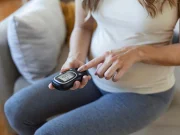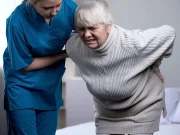Older adults with long-term benzodiazepine receptor agonist use and insomnia diagnosis had significant improvements in sleep outcomes
By Lori Solomon HealthDay Reporter
FRIDAY, Sept. 20, 2024 (HealthDay News) — A mailed knowledge mobilization and behavior change intervention can reduce the use of sedatives and improve sleep outcomes in older adults with insomnia, according to a study published online Sept. 18 in JAMA Psychiatry.
David M. Gardner, Pharm.D., from Dalhousie University in Halifax, Nova Scotia, Canada, and colleagues compared two direct-to-patient behavior change interventions versus treatment as usual (TAU) on benzodiazepine receptor agonist (BZRA) use, sleep, and other health outcomes. The analysis included 565 adults aged 65 years and older living independently with long-term use of BZRAs and a current or past insomnia diagnosis randomly assigned to one of two different mailed behavior change interventions or TAU.
The researchers found that BZRA discontinuations and dose reductions of ≥25 percent were highest with the Your Answers When Needing Sleep 1 booklets (YAWNS-1; 26.2 and 20.4 percent, respectively), compared with YAWNS-2 (20.3 and 14.4 percent, respectively) and TAU (7.5 and 12.8 percent, respectively). There was also better uptake of cognitive behavioral therapy for insomnia (CBTI) techniques and sleep outcomes with YAWNS-1 versus YAWNS-2 (new CBTI techniques, 3.1 versus 2.4; sleep efficiency change, 4.1 versus −1.7 percent) as well as reduced insomnia severity and daytime sleepiness compared with TAU (insomnia severity index change, −2.0 versus 0.3; Epworth Sleepiness Scale change, −0.8 versus 0.3).
“Transitioning insomnia care for older adults away from long-term sedative use and toward cognitive behavioral therapy for insomnia can be achieved using a mailed, direct-to-patient approach,” the authors write.
Abstract/Full Text (subscription or payment may be required)
Copyright © 2024 HealthDay. All rights reserved.



















